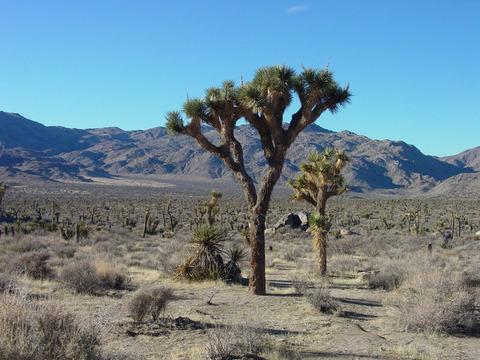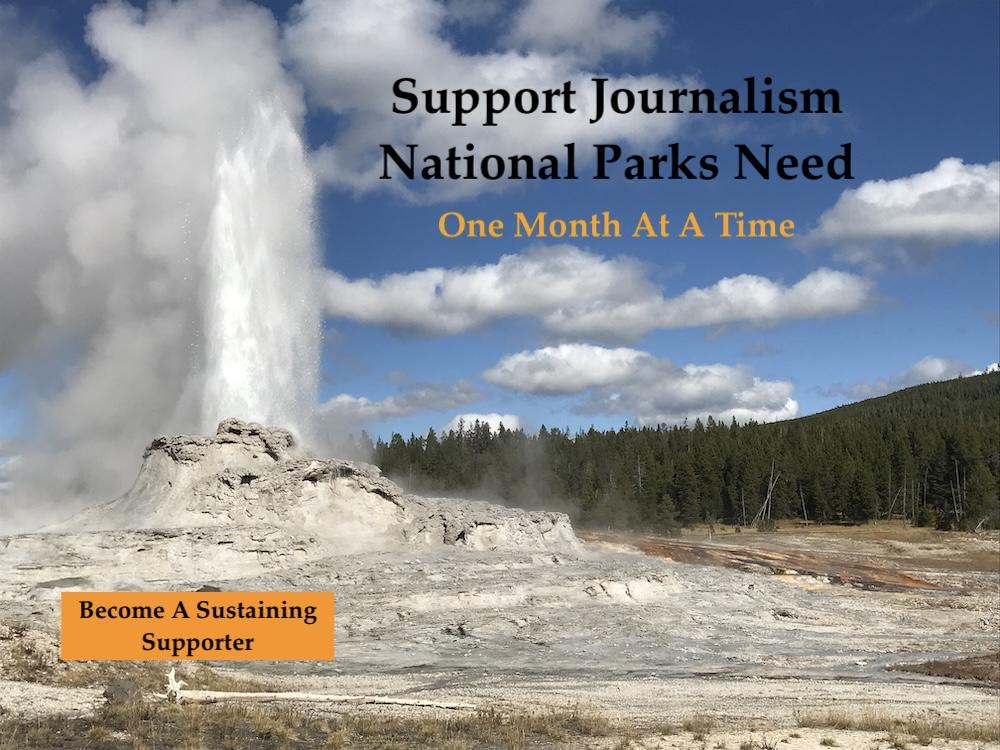In what could be a sign of what's to come, a court has blocked Wal-Mart from building a Supercenter near Joshua Tree National Park because the company did not adequately consider its greenhouse-gas impacts.
The ruling was handed down Thursday by a San Bernardino County Superior Court judge in response to a lawsuit filed by the Center for Biological Diversity.
“The court agreed that Wal-Mart broke the law by refusing to even consider common-sense measures to reduce the greenhouse gas footprint of its latest big-box store,” said Matt Vespa, senior attorney with the Center’s Climate Law Institute. “California law requires consideration of greenhouse emissions and other environmental impacts from new development, and it is only fair that Wal-Mart comply with this important requirement.”
The lawsuit is one of a series of court challenges brought by the Center to reduce greenhouse gases from new development through the California Environmental Quality Act. The Act mandates that where an environmental impact is determined to be significant, all feasible mitigation measures must be adopted to substantially lessen the impact.
While this lawsuit was specific to California, as efforts continue across the country to minimize greenhouse gases, how long might it be before other states pass similar laws requiring businesses to reduce their carbon footprints?
According to the Center for Biological Diversity, Wal-mart, in its environmental review for the proposed project, "attempted to avoid adopting feasible measures to reduce the carbon footprint of its Supercenter by determining that the project’s cumulative impact to global warming was less than significant. The court rejected Wal-Mart’s finding that the project’s impacts were not significant as unsupported and contrary to science."
Interestingly, on its corporate homepage Wal-mart touts California's efforts to generate solar power and comments that, "California is an excellent state for us to expand our use of renewable energy and thus create more green jobs."
That evidently didn't slip by Mr. Vespa.
“Wal-Mart talks a lot about fighting global warming, but when it comes to actually taking action, it bent over backwards to avoid incorporating cost-effective features like solar panels to reduce its carbon footprint,” he said. “The enormous disconnect between Wal-Mart’s stated environmental goals and its actions is classic greenwashing.”
In a release the Center says the superior court also noted that Wal-mart's environmental review "neglected measures to reduce ozone and dust pollution, and environmentally superior alternatives. The environmental study also disregarded data that the Supercenter would result in 'urban decay,' a process that causes other local stores to go out of business."
“Business-as-usual big box sprawl is devastating to our environment and communities,” said Vespa. “California law requires Wal-Mart to take stronger steps to live up to its promise to reduce significant environmental impacts like global warming.”


 Support Essential Coverage of Essential Places
Support Essential Coverage of Essential Places







Comments
And you wonder why California is going broke? How many employees does walmart have in California? How much in Taxes does Walmart and it's employees pay? Your "GREEN" jobs is b.s. We can,t get a solar plant up here in California City because of environmental b.s. If we want to put up wind turbines in Tehachapi you fight us. The only reason you fight us is because you keep these stupid lawsuits tied up in courts in order to give yourself a a steady paycheck. Once you bled all the money you can from any company that wants to build in California you move on to the next "cause" . You don,t give a rats a## about the environment or people trying to scratch out a living in this ... state .
signed,
sick and tired
Wal-Mart is getting too big for their britches.
I don't know if the government will take greenhouse gases into consideration with road paving or any of the other "stimulus" projects, but it's certainly an interesting point you raise, Frank.
Where do we as a society decide to make trade-offs? What is considered appropriate, what is not? Should we accept double standards? Is providing public access to a national park of higher priority than a department store?
This is the sort of thing that not only needs to be balanced across the economic/organizational spectrum, but explored if we are to slow climate change or, if you disagree that humans are a key driver in that, simply minimize our environmental impacts.
But another factor is the economics -- can we afford to mitigate everything? Trying to do so upfront can add substantial costs to a project, but then, so too can court battles. Where should the line be drawn?
If the effect of greenhouse gases is aggregate and global, then why would CO2 emissions adjacent to Joshua Tree make any more difference than CO2 emissions in Bolivia?
More to the point, did the shopping center's proximity to the park have anything to do with the court's decision, or is the park actually irrelevant to the story?
Well, sick and tired, sounds like business as usual in sunny California. We in the southern states really apreciate the problems you are having getting green businesses established out there. The more restrictions you place on them, the more they want to move down here. We can use the jobs, the taxes and the extra money they place in our pockets.
Yall just keep driving the money our way.
One more piece of evidence showing that many judges have no idea of impact on anyone else whether in their own backyards or not. Shall we now have to deal with California's fallout as we have had to with packaging, fuel, building needed refineries and more?
It seems too many judges, especially in CA have forgotten common sense and reality. Since we all have to live with many of the decisions it would make sense to have someone making those decisions who have at least studied a bit about science and economics. Like many others not from CA I am getting a bit tired of paying extra in pricing for all of the warning labels and such that have been instituted because some judge doesn't understand Darwin in addition to those who have allowed many needed projects in adjoining states to be blocked by the lobbying of special interest groups. .
As I read it, under the California law, the judge is correct. The judge didn't pass the law; which is pretty clear on feasible mitigation measures, the legislature did.
The location near Joshua Tree is pretty irrelevant to the story: certainly irrelevant to the law & decision.
My understanding of repaving projects (local, state, & federal) is that they can fly by with little analysis of environmental impacts, under the idea that they increase travel efficiency, and safety. I'd like to see some hard numbers on energy consumption in repaving v. energy saved per year after repaving. Road widening by NPS, as well as new road construction, requires the full EIAs of other widening and construction, plus the internal NPS planning process. Some NPS road improvements are not in the stimulus package because they weren't through the permitting process, and thus not "shovel-ready".